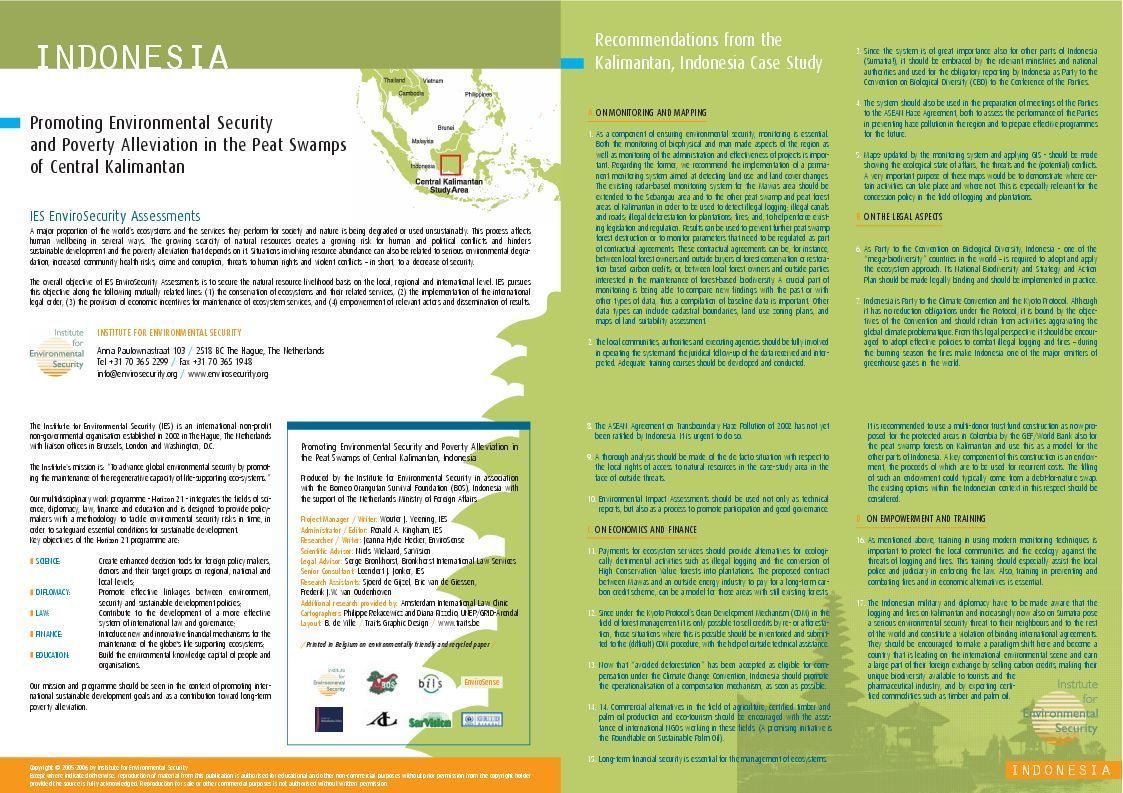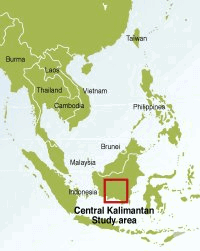Promoting Environmental Security and Poverty Alleviation in the Peat Swamps of Central Kalimantan - Poster

Central Kalimantan, Indonesia
The Borneo peat swamp forest ecoregion offers a wide variety of environmental services and goods, for instance, fresh water storage, flood prevention, livelihoods for communities and is also considered to be one of the most species rich in the region. With rampant natural resource overexploitation, such as, inappropriate land use policies; unequal rights for different groups of the population; illegal logging; peat drainage; runaway fires initiated to make way for big oil palm, plywood and pulp plantations, however, there has been an increase in environmental destruction, poverty, conflicts and violence.
 Past peatland events in Kalimantan help to show that an unchanged approach is disastrous for the environment, biodiversity and humans, not only at a local or regional scale but also at a global scale. Indonesia is a Party to all major environmental agreements and can use them to its advantage. For instance, while reforestation can generate carbon credits under the Clean Development Mechanism of the Kyoto Protocol, private investors have already shown interest in the carbon sequestration potential of the existing forests. In addition, communities' participation in conserving the ecosystems will not only ensure the existence of natural resources in the future but they can also be compensated for their work in the present. The challenge now for Indonesia is to channel the available funds appropriately and transparently without duplication to alleviate peat swamp ecosystem destruction, high levels of GHGs emission and local poverty. To accomplish this Central Kalimantan needs to focus its efforts on enforcing the law, planning effectively while incorporating sound information and monitoring.
Past peatland events in Kalimantan help to show that an unchanged approach is disastrous for the environment, biodiversity and humans, not only at a local or regional scale but also at a global scale. Indonesia is a Party to all major environmental agreements and can use them to its advantage. For instance, while reforestation can generate carbon credits under the Clean Development Mechanism of the Kyoto Protocol, private investors have already shown interest in the carbon sequestration potential of the existing forests. In addition, communities' participation in conserving the ecosystems will not only ensure the existence of natural resources in the future but they can also be compensated for their work in the present. The challenge now for Indonesia is to channel the available funds appropriately and transparently without duplication to alleviate peat swamp ecosystem destruction, high levels of GHGs emission and local poverty. To accomplish this Central Kalimantan needs to focus its efforts on enforcing the law, planning effectively while incorporating sound information and monitoring.